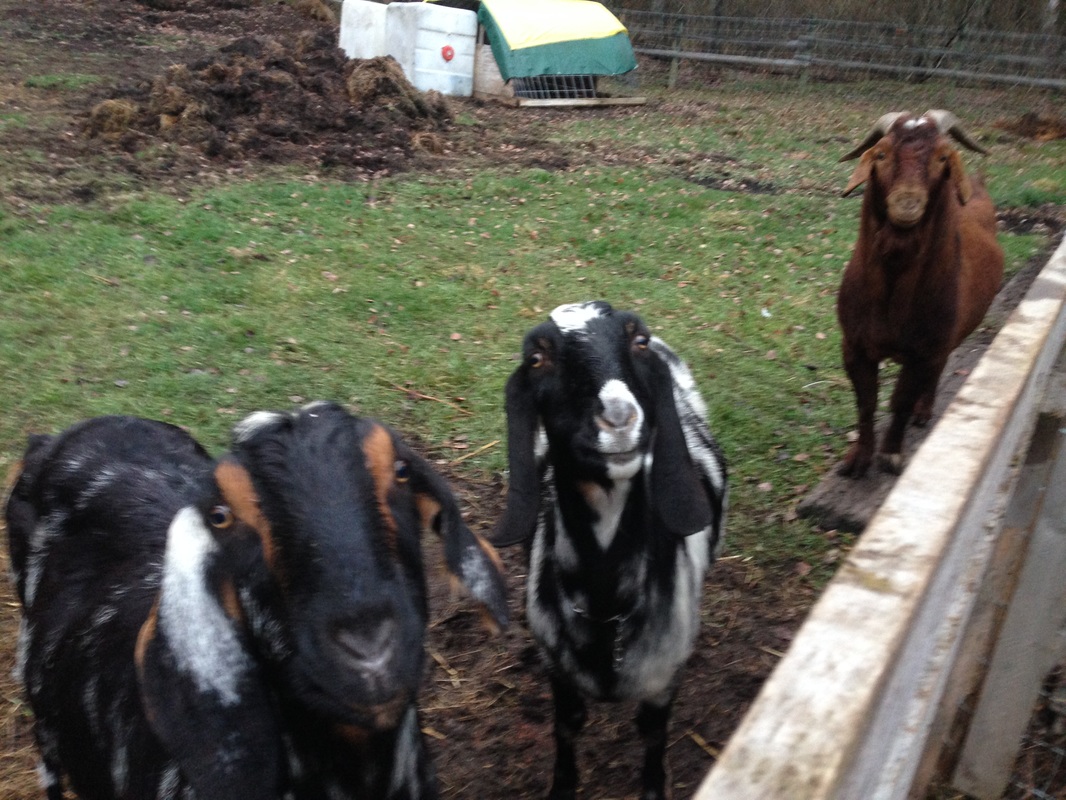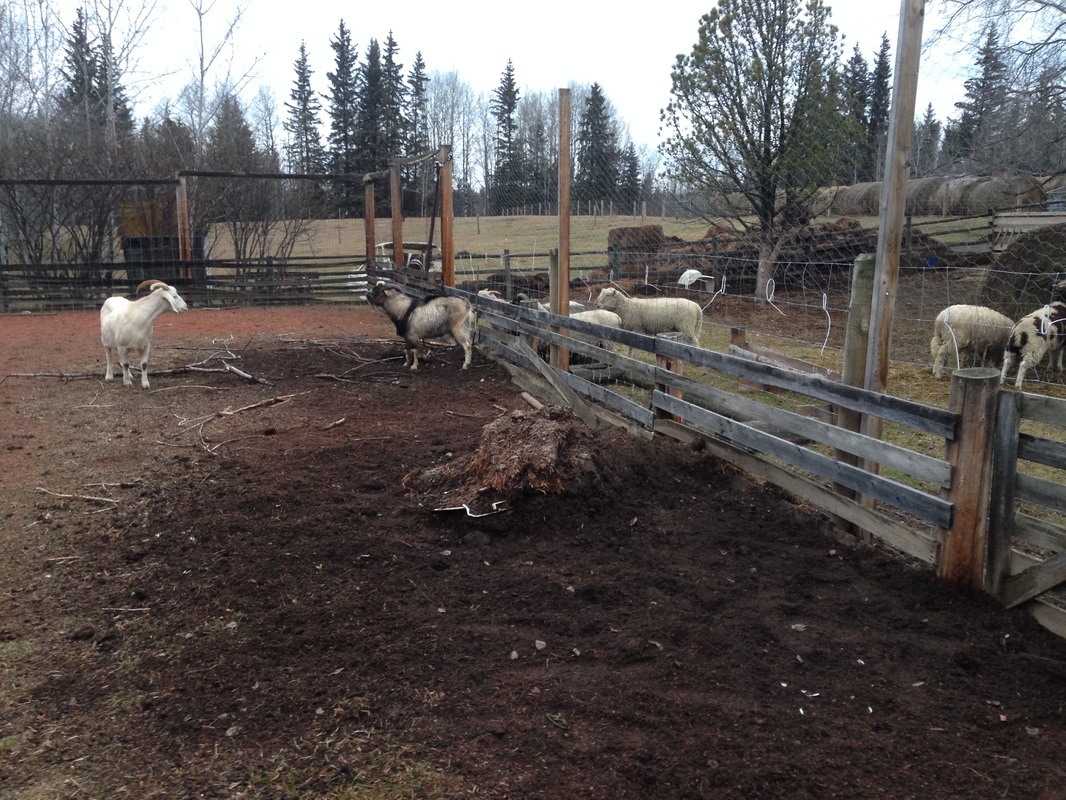
Little Stevie Wonder got to go visit the majority of the girls today. He is very young to breed and some of those goats are likely too large for him. The cashmere goat will be a first time mother and I will remove her to have the Angora buckling breed her and have Cashgora babies, babies with curly cashmere. They must be so cute. Stevie and Timmy, the Angora, oh and the Kiko, Ari, have not bred before, so it might take them a little time to figure it all out. They will stay with their group for 6 weeks, then I will switch the bucks around in case they have not done their jobs. Hopefully the girls will all be bred for delivery 5 months from now, which will be April, when our winter weather is finally saying goodbye.
Ari is with Lily, just the two of them. They are both pure bred Kiko goats.
Matty and Dori are with the new buck, Ritchie, who is supposed to be a Kalahari Red, though I don't know of anyone who has those around here. Ritchie and Lily had they hooves trimmed today, but I could not catch Ari. I plan to trim two or three animals per day until they are all done. The goats I did today were done standing up. I haltered them and tied them tight to the fence post, then body checked them to the fence and brought the foot back at the knee. It was more comfortable for me than flipping them and trimming while on the ground and I think it was more comfortable for the goats too.
The goats were out of their pen twice today and headed straight for the grain that was out for the pigs and birds. It is a good thing I was home and caught them. Wilbur, the pot belly boar liberated them both times, but then I chained the gate so he could not dislodge it and all is well. Bonnie, the cashmere goat, is very bonded to the Nubians, who were sort of like surrogate mothers to her when she was little. She is calling for them all day, though they are happy with Ritchie in the pen far on the other side.
Over the next week or two, the sheep will be divided for breeding too. I had to drag Lily the entire way across the barnyard to get her to the pen where she needed to be. She basically dug her four feet in and it was a drag the goat fest from there on. She weighs probably 125 pounds, so it was not a simple task dragging her all the way through the mud. I hope the sheep are more cooperative. I have an idea of how to separate them. I plan to feed them some grain in the corral set up in their pen and grab those I want and send them out of the coral. Then I will lure them with a bucket of grain to their new digs. They are not fed grain normally, but this year's hay is not up to par, so they will get a little to supplement them over the winter.
I have not seen any keds, wingless biting flies that live on the sheep only, so far. In the dead of winter is when they multiply and become visible. I will treat them immediately with pour on Ivermectin this time. They ruined some of the fleeces last year and I don't want it to go that far again, now that I know what to do. The sheep will be checked for parasites (worms) and treated if necessary using the FAMACHA system, which looks at the bottom of the eyelid for anemia. Pale pink to white eyelids mean a high worm count, pink to red means that the sheep is managing its parasite load on its own. Tapeworms are the one thing that the FAMACHA test does not account for, so the droppings must be observed for tape segments, the telltale sign of the worms. Then the groups will be busy until the new year, when the rams can go back home and the ewes can again join one another preparing for their babies. At that time they will need good food and warm shelter so they can support their pregnancies the very best.
And so, with the short days, there are events to be anticipated and little hooves to be watched for in the new year. Spring on the farm is such a wonderful time of the year with the new babies and the outpouring of emergent life everywhere. I am grateful for my farm and my stewardship of the animals. What a blessing they are to me. And so, the breeding begins.


 RSS Feed
RSS Feed